Months of Meryl: Kramer vs. Kramer (1979)
 Thursday, February 1, 2018 at 1:34PM
Thursday, February 1, 2018 at 1:34PM Hi, we’re John and Matt and, icymi, we are watching every single live-action film starring Streep. Previously Julia, The Deer Hunter, Manhattan and The Seduction of Joe Tynan
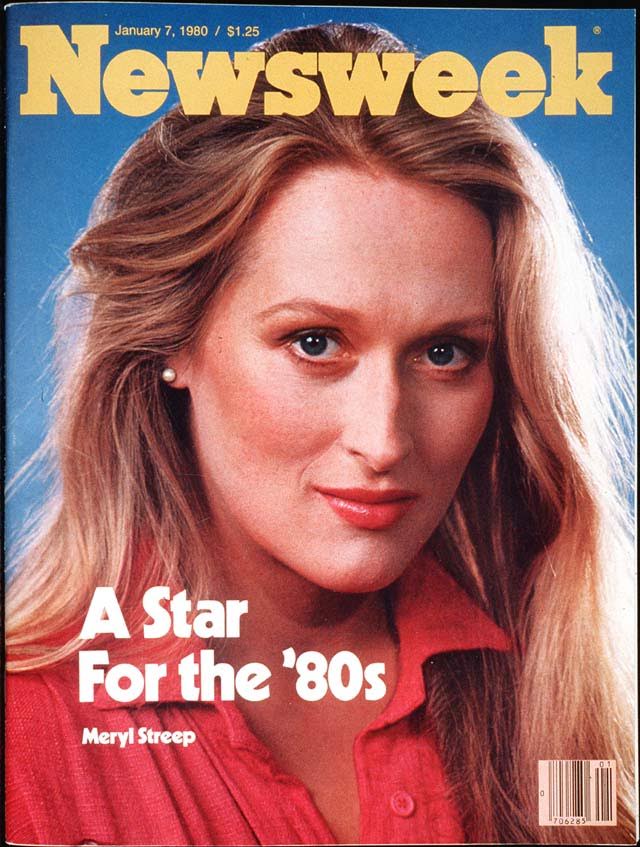
#5 — Joanna Kramer, a mother and divorcée embroiled in a messy custody battle.
It’s 1980. Kramer vs. Kramer is a critical and commercial smash (the top-grossing film released in 1979). The dawn of a new era approaches and one actress is anointed as its icon...
“The face is beautiful but anguished, haunted by sorrow, despair, determination and love. Can one face express all these warring emotions, with a grave dignity that adds a deeper beauty to the physical structure? Meryl's face can and does in the extraordinary first image of "Kramer vs. Kramer". This first shot of a superbly crafted film prints indelibly upon the eyes and consciousness of the audience the face of a young actress who, at 30, may become the strongest performer of her generation, first American woman since Jane Fonda to rival the power, versatility and impact of such male stars as Dustin Hoffman, Robert De Niro and Al Pacino...
People sense there's nothing new about Streep. There's a sense of mystery in her acting; she doesn't simply imitate (although she's a great mimic in private). She transmits a sense of danger, a primal unease lying just below the surface of normal behavior. A Streep character isn't quite sure who she is or exactly what she's doing - just like you and me. She's less ingratiating than Jill Clayburgh, less self-satisfied than Jane Fonda (not the Fonda of "Klute"). And unlike the Great Bimbos of the 70's, the Farrahs and Suzannes, her beauty has nothing to do with the yearning smirks of male fantasy. Farrah smiles like a plastic nutcracker; Streep smiles like destiny.”
MATTHEW: Last year’s release of Michael Schulman’s "Her Again," an adulatory chronicle of Meryl Streep’s early life from childhood to the cusp of best-of-a-generation stardom, has brought to light a great deal of the actress’ stormy experiences behind the scenes of Kramer vs. Kramer. At the risk of veering the discussion away from the actual performance, here are the key reveals:
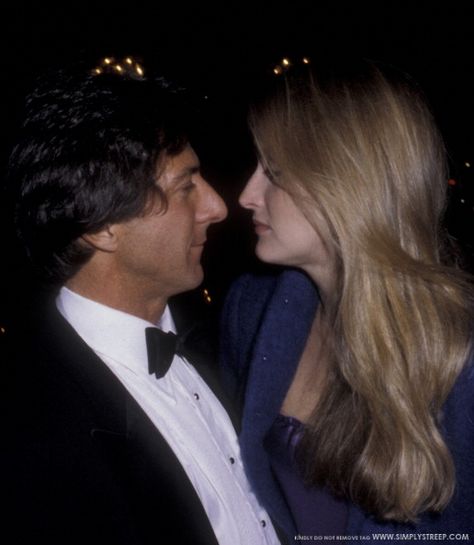 Dustin Hoffman and Meryl Streep at the premiere of their iconic blockbuster hit (and eventual Best Picture winner)
Dustin Hoffman and Meryl Streep at the premiere of their iconic blockbuster hit (and eventual Best Picture winner)
• Leading man Dustin Hoffman imposed his own excessive Method techniques on a reluctant Streep, going so far as to slap her, without warning, before a key scene on the second day of shooting.
• As in that same year’s The Seduction of Joe Tynan, Streep tapped into her own grief over the recent death of lover John Cazale during the making of the film — as did Hoffman. Overstepping his boundaries, yet again, Hoffman hurled a series of improvised taunts at Streep during the filming of Joanna’s early exit, making explicit reference to Cazale’s death in order to get Streep in the proper mindset for her teary scene.• In adapting Avery Corman’s overwhelmingly chauvinistic source novel, writer-director Robert Benton allowed Streep to write her own version of Joanna’s courtroom speech, resulting in what was surely her Oscar-clinching scene.
Many people love Streep’s famed supporting turn in Kramer vs. Kramer, which nabbed her the first of three Oscars within a roster she was always going to dominate. Some even consider it her best performance, ever. I would not go that far, especially since Joe Tynan calls on Streep to explore so many more interestingly varied emotional dimensions within her comparably limited screen time. That being said, Joanna Kramer is easily one of Streep’s most disciplined and crushing characterizations, evident from the film’s very first shot. In fixed close-up, Streep stares down at her sleeping son Billy (pint-sized Justin Henry), before bidding him goodbye and taking her momentary leave from the film. The shot and the scene itself are startling in their intimacy.
Even in near-darkness, Streep remains luminous. Her conflicted face floods onto the screen, practically its own source of light. It’s indicative of the performance that follows that Joanna already seems like an apparition in this scene, less a person filling this space than a ghost drifting in and out of it. She wears the internalized air of a person who has resigned herself to being unseen in the outside world, but also in her own home. And yet the veiled emotion of Streep’s playing (in which sorrow races to the surface, threatens to engulf her, and then just as quickly dissipates) ensures that Joanna’s turmoil will at least be seen by us, the audience.
This scene announces with eerie quiet what is so special and indelible about Streep’s interpretation of Joanna Kramer. And, furthermore, its position as the only scene in which Joanna isn’t defined by her husband Ted (Hoffman), unseen at this point, is a further testament to Streep’s real crowning achievement in the film: whenever she’s onscreen, she makes us honestly believe that Kramer vs. Kramer actually cares as much about Joanna as it does about Ted.
I know you hold this performance quite dear. What do you think is behind its continued relevance for Streep fans both casual and devout?
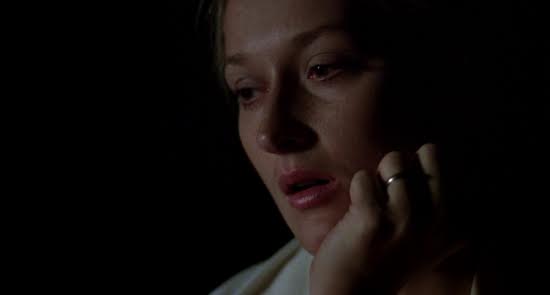
JOHN: Kramer vs. Kramer was my first Meryl, the earliest one I can remember seeking out and renting from Netflix’s DVD service during my freshman year of high school --it’s one of those formative entrances into Meryl and Oscar and movie mania in general. It’s hard to separate the feeling of initial awe from that first encounter when I see it again on subsequent rewatches, even when, on this fourth go-round, some blemishes reveal themselves quite vividly. The film seems to have accrued an unfair label as Prestige or Baity or overtly sentimental, and yet I still find something transfixing and sincere about its melancholic 70s aesthetic (bless D.P. Nestor Almendros) and all the tenacious acting showcased in this distinctly adult take on familial Manhattan malaise.
But I do have issues, most of which coalesce and get (somewhat) resolved in Streep’s Joanna. Who is Joanna Kramer? What was she looking for, and what exactly did she find? What, beyond Billy, excites her? Unnerves her? Pisses her off? After all these years and hours spent watching and thinking about her, such questions remain. I understand Joanna Kramer and yet there’s an aloofness, a vacancy in the character’s core that holds the performance back from deserving those first-place positions and critical hosannas. From its inception, Kramer vs. Kramer had always been a stacked deck. As you’ve mentioned, Streep did some heavy lifting to flesh out the character and her dialogue from a misogynist script device into a full-bodied woman. The sheer fact that Kramer vs. Kramer is referred to as even-handed or as a balanced look into parenting and divorce is entirely care of Streep’s performance. Without Streep’s protectiveness of Joanna and the humanity the actress evinces, the film would be even more of the Men’s Rights, feminist-questioning, single-dad paean it sometimes gets caught being.
I’m not sure Streep overcomes the limitations embedded in the script, but then again I’m not sure anyone else could have turned in anything better. To clarify, Streep is indeed marvelous here. The pause between “painted” and “clouds.” The way she pulls the rug out from under Ted in the restaurant. The entire (self-written!) courtroom testimony. “How do I look?” It’s a master class of devastation and suffering, but also a feminist triumph of actress auteurship fighting against a movie’s unsubtle “Hey, that’s reverse-sexism!” ethos. I only wish she had more to work with. Kramer could have benefited immensely from fewer moments like Streep’s creepy stalker tableau in the restaurant window (even though that shot always sends chills down my spine) and more scenes that observe Linda alone with Billy and seek to capture something more detailed beyond the character’s tearful dejection.
Am I being too harsh? Am I underselling her brilliance in the role, even as I disparage the role itself? Maybe I’m anticipating more of my favorite Meryls and swimming slightly against the exalted position of this performance in her body of work, although I really don’t mean to come across as anything but a fan of what Streep does here. And now, sir, in the case of Eng vs. Guerin, the court will hear your testimony.
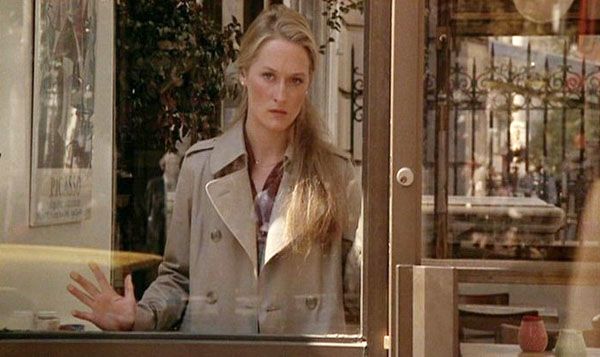
MATTHEW: I don’t think you’re being needlessly harsh in the slightest. I absolutely agree that Streep mostly overcomes what was always a lopsided look at divorce and its damaging effects. Why isn’t Joanna a co-lead role? Why is Streep stuck striking eerie, watchful poses from behind plate-glass windows like some tamer precursor to Alex Forrest, as opposed to fostering meaningful and specific interpersonal connections with anyone on screen beyond Hoffman? Why does her friendship with Margaret, the liberated yet impossibly malleable next-door-neighbor played quite movingly by Jane Alexander, fall by the wayside with such brusque speed? I never forget these questions when I’m watching Kramer vs. Kramer, but Streep finds interesting solutions to them, culminating in that courtroom monologue, which is undeniably her most powerful scene as well as the hardest-hitting scene of the film.
This speech could have easily been milked for maximum emotional impact. It’s the type of archetypically tear-jerking set-up from which innumerable Oscar clips have been crafted, which makes Streep’s decision to underplay the scene all the more laudable. I still can’t envision a single moment of Joanna’s restorative journey in California, but the delicate, unfussy physicality of Streep’s performance at least convinces me that the character has grown and changed in fundamental ways. As we watch a straight-backed and far more self-assured Joanna calmly but not unemotionally state her case, we see a changed woman now able to hold her head not exactly high but higher than the shrinking violet evading her husband’s aggressive pleas in the film’s first moments. When Joanna is then returned to this status and labeled a “failure” by Ted’s bullying lawyer in just a matter of minutes, Joanna doesn’t get pissed but actually seems to shut down, refusing to defend herself as her assuredness flickers away behind Streep’s increasingly translucent facade. Streep makes this momentary vilification of Joanna, swiftly negated by a sympathetic Ted, all the more upsetting because we are seeing an already recessive woman gradually lose her newfound confidence and fold back into herself, sowing the seeds for the change of heart that occurs in the film’s last few minutes. Is giving up Billy a rational change of heart or just another crippling crisis of faith for Joanna?
In the same year as Sally Field raising up that iconic “UNION” sign and Jane Fonda bracing her own anguish to go on with the newscast in The China Syndrome’s final moments, Joanna Kramer’s briefly-glimpsed self-discovery might feel harder to root for but no less important to examine. Streep’s tender but tough-minded performance may have augmented her own ascendancy, but it also ensured that a credible feminist perspective would not be cast aside in Kramer vs. Kramer — a victory of equal and deserving importance.
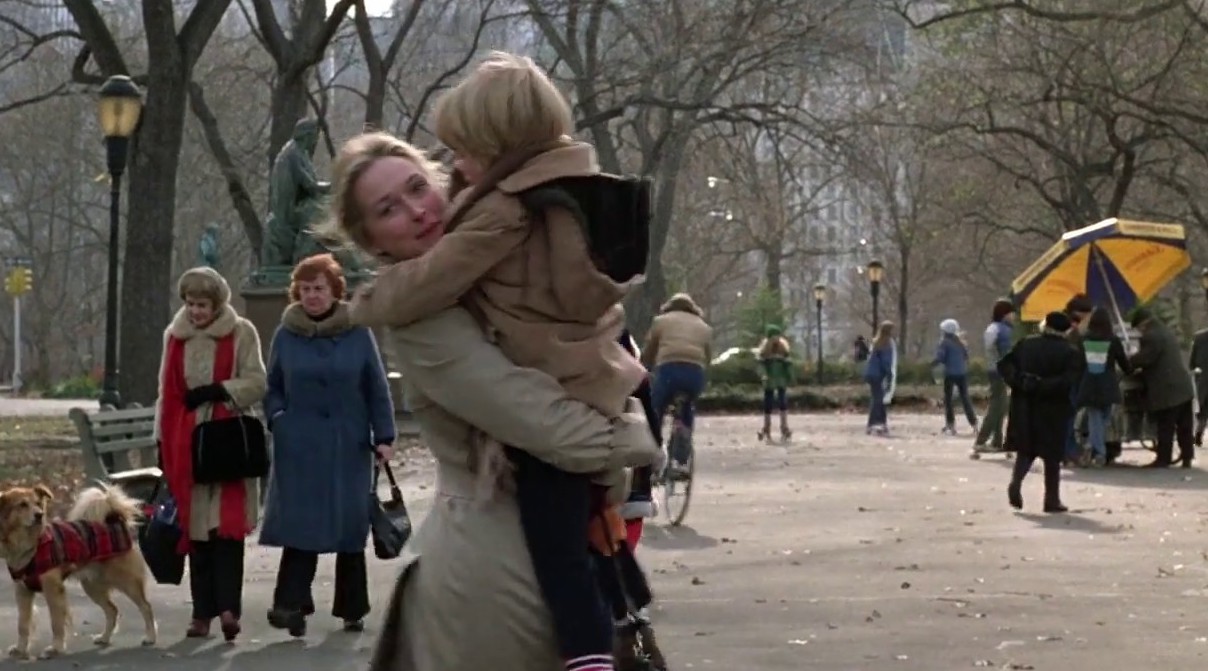
JOHN: I’m still uncertain about whether Joanna’s choice to give up Billy further establishes her as a feminist martyr whose unconditional love is turned against her, or whether she is simply doing the best thing for both of them under difficult circumstances. Streep nonetheless sells the eternal love for her son as if the umbilical still connects them, hinting at a bond to rival Billy and Ted’s newfound relationship of silent routines and forthright frustrations.
Just as Joanna gives something of herself up, I see Streep doing something similar: she disappears completely into Joanna and gives herself up entirely to a person that is markedly different from her own offscreen personality. Streep writes her own monologue; Joanna can’t even paint clouds. It would be easy for Streep, a headstrong, Vassar-educated woman on the cusp of superstardom, to mold Joanna into herself. Instead, Streep does the opposite, choosing to showcase Joanna’s ambivalent feminism rather than use her as a vessel to make a statement. In Kramer, Streep forgoes any notions of selling a star persona by fully enmeshing herself in this comparatively timid and reluctant person.
At this juncture, you can clearly see the beginning of her career-long dedication and adherence to conflicted, ambivalent women, rendered with zero vanity. And she does this all with expert naturalism. On the stand, Streep conveys the feeling that while Joanna’s sadness has been bubbling below, her choices are occurring moment to moment, negotiating everything from freedom to disappointment to love to heartache to sheer overwhelmingness. There is a spontaneity and fullness to Streep’s Joanna that warrants acclaim regardless of the role’s limitations. Yes, much does happen “on the surface,” but there isn’t some cold, unfeeling technician pulling the strings underneath: there’s a whole human being.

The court will now hear your testimony. Where do you place Joanna Kramer in Streep's pantheon? Imagine it’s 1980: what do you make of this 'Meryl Streep'?



Reader Comments (16)
This is such a great performance, and I love how she's so haunted. She brings such great depth to the pangs and pains of her relationship with Hoffman and life at the beginning. It's impossible to forget that look.
And, while I love the fawning over her in Newsweek, that Jack Roll quote is filled with sexism and needless attacks on other women. While things are still bad, I would hope no one publishes something like that today.
Quite honestly, my second favorite Streep film and performance, directly behind Devil Wears Prada.
If I were alive in 1980? Probably would be thinking the same thing everyone else was thinking! "Extremely talented young woman! Give her an Oscar!" But I'd also wonder if she'd be a flash in the pan, considering she WAS 30, and back then that was a worrisome age for actresses.
This movie sealed the deal. I always viewed Joanna as suffering from depression, even if they did not have the full vocabulary yet for discussing that condition. What made the movie so popular was the unflinching look at how awful divorce is. It was not previously portrayed that candidly, and everyone at that time knew someone impacted by a divorce or they were neglected, etc.. I still find it very wrenching and moving. That movie also does not have a single wasted frame. It’s very tightly edited and beautifully shot by Nestor Almendros. Streep is showing us how she was learning to screen act; some of her mistakes end up in the movies because they are genuine emotional moments. Hoffman is also vey good despite his off screen actions.
I don't get why you want her to be a co-lead? It's not fair to ask the movie to be what it doesn't want to be. It doesn't want to be balanced. It doesn't want to tell her story. The movie is about Ted and Streep has a supporting role. The focus is on him.
Of course some supporting parts are so good that you want them to be the leading parts, but it's not a flaw of the movie to the tell the story of another character.
The reason why Streep's performance is so good is that we have to guess a lot about her character. More scenes of Joanna and the boy would probably make the movie more explanatory. It's not her story. She's perfect as a catalyst for Ted's arc.
I love this performance but I disagree that we need to know any more than we do about Joanna's inner life and definitely disagree with people who dismiss it as a men's rights movie. Fact: fathers are human beings and the good ones have deep love for their children and any parent, male or female, whose partner abandons a child, would have anger and resentment and "do they really deserve access to this child?" issues... and people only really get angry about this depiction when it's a woman abandoning her child. When men have or do abandon their children onscreen there's far less sympathy in the depiction than Meryl gets here, I'd argue.
One of the best things about the movie (which I love far more than most people I'm sensing), is that it's haunted not just by Streep but by this notion that men no longer understand what women want and women no longer understand what they want*
* which is to say that I think in our need to be progressive and feminist and all the good righteous intentions of that we can err on the side of a lack of nuance in regards to human behavior. People (which includes 50% women) are complicated and a LOT of people don't know what they want or how to get it or what is or isnt toxic for them in a relationship / life situation that might be just right for someone else of the same [insert gender, sexual orientation, religion, race, anything here]. Joanna is not a terribly articulate woman but even if she were could she really explain it? I think her hazily identified offscreen search and the inchoate feeling that that exudes is kind of deliciously apt to a process that is inherently mysterious as people reexamine their lives. What's more I think the same holds true when it's less an individual than a group. Big social changes (like the ones going in the 60s and 70s prompt a lot of handwringing about what our roles are both privately and publically and the way people grapple with those things can be loud and firm but it can also be totally contradictory from moment to moment.
I am one of those who maintains this is her Best Supporting Performance and on of her top 3 best and also one of THE best this category ever saw,she nails it from the opening,the elevator scene is truly heartbreaking and visceral in it's emotional impact,we want to follow Joanna and ask her questions,she comes back and answers them for us.
Top level Streep right up there with Silkwood and The Bridges of Madison County as top 3 Streep for me.
Monumental performance.
Plenty of actors helped rewrite the rules of screen acting in the 50s, 60s and 70s. For actresses you imagine Gena Rowlands, Anne Bancroft, Ellen Burstyn. And the Fondas and Taylors whose work straddled the old and the new.
To me, Meryl in Kramer vs. Kramer was the death blow to the old school.
I was in college when the film was released. There had never been a movie like it before. Box office was huge. It's what everybody talked about in those 'simpler' times. Streep was new and fresh, portraying an unsympathetic character in a controversial movie. The performance was both brave and monumental. No wonder she became famous, a star. And who knew what roles were yet to come!
She's magnificent in the film. And I like the film a lot in general. I feel quite a bit of what Nathaniel feels about it. I also think that Hoffman, Henry and Alexander are all terrific. What a wonderful quartet of Oscar-nominated performances (with two wins). For example, in the courtroom scene, the sensitivity of Streep's performance is aptly balanced by the tendernes of Hoffman's. Quality work all round. And Benton did fine work as writer-director.
A supporting acting masterpiece.
If given more screntime could have won in leading.
I do wish that we can see Joanna and the Margaret's friendship play out on screen.
That said, Jane Alexander also did so much in so little time.
Who would you give a Newsweek treatment nowadays? lol
MERYL YOU LOOK AMAZING SWEETHEART
As a child of divorce in the 1970s whose father was awarded custody, I've always felt connected to this film. It's hard to explain to anyone who didn't grow up at this time how men's and women's roles were changing. Not defining Joanna's time away reflected the many women at that time who were trying to determine who they were outside the wife and mother role. There was no answer, and it was a personal journey for each of them that took years even decades to pursue. The miracle of Meryl's performance is capturing that deep uncertainty that Joanna and other women experienced without making her the villain or a puddle of mush. Joanna was heartbeakingly real thanks to Meryl.
I know a lot of people loved this movie. I haven't seen it in a long time and have never re-watched it, because I hated it.
The story as I remember it, went:
1) Dad (Dustin Hoffman) is shocked and outraged that he should have to act as primary caregiver to his own child, ever, for any amount of time.
2) Dad receives his righteous vindication, proving that men are better at everything than women, including parenting.
I would have liked to have seen Kate Jackson, the original actress cast in Streep's part. Jackson was unable to do the role because of her contractual obligations to her tv show "Charlie's Angels". Streep was originally cast in the Jane Alexander role.
I wonder if Jackson's interpretation would have been more combative and messy than Streep's good taste and acquiescence.
If Hoffman had tried to slap Jackson, he would have found himself on the receiving end of someone who did stunt work and fighting every day in her working life.
This was one of the first "adult" movies I recall seeing, and I've always loved it because it managed to treat Billy, who was about the same age I was when I first saw it, with such respect. He isn't dumbed down or made overly cute for laughs.
Robert Benton is the sort of director who could never win Best Director at the Oscars today. That's a real shame (and I say that as someone who thinks his competitor Bob Fosse is one of the GOAT). We just don't value directors who can marshall brilliant performances from a beautifully integrated ensemble (including a 7-year-old!) and tell a well-paced, involving story without frills.
@adri. You are talking a totally different and pedestrian film.
I just think it's one of the best performances in a supporting role of all time. Streep took a very unlikable and underwritten character and made us all feel her pain, sadness, and longing for more. That's a tall order and she pulled it off.
Needless to say the background information on Dustin Hoffman's antics fill me with contempt.
What an asshole.
Best Scene In An Elevator featuring Meryl Streep:
Adaptation
It’s Complicated
Kramer vs. Kramer ***WINNER***
The Devil Wear Prada *runner up*
The Hours